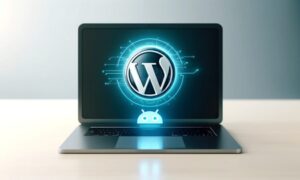In today’s fast-paced world, businesses are constantly seeking ways to optimize their operations and reduce costs. One area where significant improvements can be made is energy efficiency. With rising energy costs and growing concerns about environmental sustainability, businesses are turning to innovative technologies to minimize their energy consumption while maximizing productivity. In this article, we’ll explore three energy-efficient innovations that are revolutionizing the way businesses operate.
Smart Lighting Systems
One of the most impactful energy-efficient innovations for businesses is the adoption of smart lighting systems. These systems utilize advanced sensors and controls to adjust lighting levels based on occupancy, natural light levels, and time of day. By automatically dimming or turning off lights in unoccupied areas, smart lighting systems can significantly reduce energy waste.
Businesses that implement smart lighting systems can enjoy several benefits. Firstly, they can achieve substantial cost savings on their energy bills by reducing electricity consumption. Additionally, these systems often have a longer lifespan than traditional lighting fixtures, reducing maintenance costs over time. Furthermore, the ability to customize lighting levels can create a more comfortable and productive work environment for employees.
For example, a large office building in downtown Chicago recently installed a smart lighting system throughout its premises. By integrating occupancy sensors and daylight harvesting technology, the building reduced its annual energy consumption by 30%, resulting in significant cost savings.
Renewable Energy Solutions
Another key trend in energy efficiency for businesses is the adoption of renewable energy solutions. From solar panels to wind turbines, businesses have a variety of options for generating clean, sustainable energy onsite. By harnessing renewable energy sources, businesses can reduce their reliance on traditional fossil fuels and lower their carbon footprint.
The advantages of renewable energy solutions extend beyond environmental benefits. Businesses that invest in renewable energy often qualify for government incentives and tax credits, making the initial investment more affordable. Additionally, onsite renewable energy generation can provide a reliable source of power, reducing the risk of disruptions due to grid outages or energy price fluctuations. Businesselectricityprices.org.uk helps businesses interested in exploring renewable energy options, helping them navigate the complexities of implementation and maximize the benefits of sustainable energy solutions.
For instance, a manufacturing company in California recently installed a solar panel array on the roof of its facility. By generating a portion of its electricity from solar power, the company was able to reduce its energy costs by 40% within the first year of operation.
Energy-Efficient HVAC Systems
Heating, ventilation, and air conditioning (HVAC) systems are significant consumers of energy in commercial buildings. However, advancements in HVAC technology have led to the development of energy-efficient systems that can dramatically reduce energy consumption without sacrificing comfort.
Energy-efficient HVAC systems utilize features such as variable-speed compressors, advanced controls, and energy recovery ventilation to optimize performance and minimize wasted energy. By upgrading to these systems, businesses can achieve substantial cost savings on heating and cooling expenses while maintaining a comfortable indoor environment for occupants.
For example, a hotel chain recently retrofitted its properties with energy-efficient HVAC systems, resulting in an average reduction of 25% in energy consumption across all locations. Not only did this initiative lower operating costs, but it also improved guest satisfaction by providing more consistent temperatures and better indoor air quality.
Case Studies
Real-world examples of businesses implementing energy-efficient innovations can provide valuable insights for others looking to follow suit. From small startups to multinational corporations, businesses across various industries are embracing energy efficiency as a strategic imperative.
For instance, a tech startup based in Silicon Valley recently renovated its office space to incorporate energy-efficient design principles. By optimizing lighting, HVAC, and equipment usage, the company achieved a 50% reduction in energy consumption compared to its previous office space.
Challenges and Solutions
While the benefits of energy-efficient innovations are clear, businesses may encounter challenges in implementing these technologies. Common barriers include high upfront costs, limited access to financing, and concerns about disruption to operations.
However, there are several strategies that businesses can employ to overcome these challenges. For example, businesses can explore financing options such as energy efficiency loans or leasing arrangements to spread out the cost of upgrades over time. Additionally, working with experienced contractors and energy consultants can help businesses identify the most cost-effective solutions for their specific needs.
Future Trends
Looking ahead, the future of energy-efficient innovations for businesses is promising. Advances in technology, coupled with increasing awareness of environmental issues, are driving rapid innovation in this space. From AI-driven energy management systems to next-generation building materials, businesses can expect to see a wide range of innovative solutions emerge in the coming years.
Energy efficiency is a critical consideration for businesses looking to reduce costs, minimize environmental impact, and stay competitive in today’s market. By embracing innovations such as smart lighting systems, renewable energy solutions, and energy-efficient HVAC systems, businesses can not only lower their operating expenses but also demonstrate their commitment to sustainability and corporate responsibility.



































